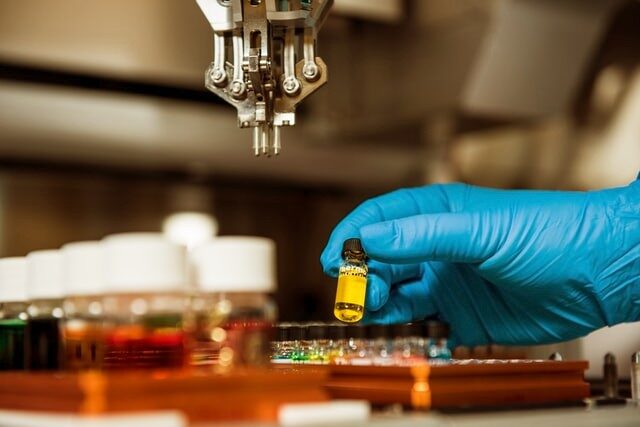Introduction
Peptides are strings of amino acids that your body produces according to Peptide Sciences. In layman’s terms, peptides are the beginnings of proteins. When you bring many peptides together, they make some of the more complex proteins in the body. Peptides, though, contain fewer amino acids and are therefore typically smaller than proteins found in nature.
Recently, peptides have gotten a lot of attention in the health wellness community. There are a lot of ongoing studies into some of the potential health benefits of peptides. People are using peptides for a wide range of conditions. Anti-inflammatory treatments, anti-aging methods, and muscle-building experts are all using peptides.
If you’re thinking of using peptides for skin health, their anti-aging properties, or attempting to do things like improving cognitive performance, we’ve put together some helpful information on peptides and what you should know.
The Peptide Basics
Amino acids are the building blocks of proteins. If you walk into a health store that sells supplements, you’ll see a lot of advertisements touting how many grams of amino acids their powder or pills contain. That’s because the thinking goes that if you consume more amino acids, your body can make more protein as a result.
One of the main issues with taking protein supplements is the amount of the proteins, or whatever else you’re taking, that gets absorbed into your body. Generally, a low percentage of whatever supplements you take has an effect. That’s why people have to eat so much of it in shakes or with their morning pill regimen to get the results they want.
Peptides, however, are more easily absorbed because they’re smaller than proteins. They typically are made of anywhere between two and fifty amino acids. The word “peptide” comes from the Greek word that means “to digest”. Because they are an essential part of the human and many animals’ bodies, they absorb well and take effect quickly.
Why People Take Peptides?
Researchers and consumers are particularly interested in bioactive peptides because of their health benefits. Research indicates that peptides can perform the same functions as antioxidants, boost immune system function, eliminate inflammation, improve blood pressure, and more.
Many people take peptides because they can act as an anti-aging agent. Collagen peptides are easily absorbed into the body and help reduce wrinkles and age spots on the skin. Collagen peptide products are widely available in stores and online. Some tests were done in animal models that taking certain peptides can alter skin pigment, possibly making it a tanning alternative that isn’t as damaging to the skin as some other tanning methods.
Some of the Other Potential Benefits of Peptides
Prevent bone loss
In rat models, collagen peptides increased bone mass. When those rats were exercised, the results were even more impressive. The results indicate that peptides can reverse age-related bone loss that plagues so many people, mostly women.
Weight loss
Some peptides show that they could offer help for people trying to lose weight. By taking peptides tied to satiety, effects are similar to the leptin hormone that makes you feel satisfied after you eat. Rodents who took peptides ate less and avoided fatty foods.
Improve Memory
Other peptides point to benefits around cognitive function. Test rats had better memories and accomplished tasks faster than control rats.
These are just some of the potential benefits of peptides. They’re found in creams, lotions, supplements, and other products.
Treating Disease with Peptides
Doctors and pharma companies also use peptides to treat a range of diseases. Currently, there are hundreds of drugs made with peptides available to patients. They help treat diabetes, high blood pressure, and multiple sclerosis.
Natural vs. Synthetic Peptides
Peptides are found naturally and they’re made synthetically in labs. Some peptides are made inside of the body, and some must be taken exogenously (from out of the body). As the peptide industry develops, researchers are finding more and more ways to make more peptides with a spectrum of health benefits.
Right now, many peptide products are making their way through the regulatory and safety process, and there is a lot of excitement around greater availability in the future.

Lastest Posts
Education
How machine translation is changing the industry: When to use it and when to avoid it?
Health
EEG Analysis: Technology Connecting the Brain to the Future
Marketing
Advancements in Solar Panel Technology: Illuminating the Path to a Sustainable Future
Lifestyle
How to Build a Capsule Wardrobe: Essentials for Every Man
Lifestyle
Women in the Catholic Church: Roles, Recognition, and Calls for Change
Marketing
Experiential Marketing for Brands: Crafting Unforgettable Consumer Connections
Banking & Finance
Understanding the Case-Shiller Home Price Index and Its Multiple Merits